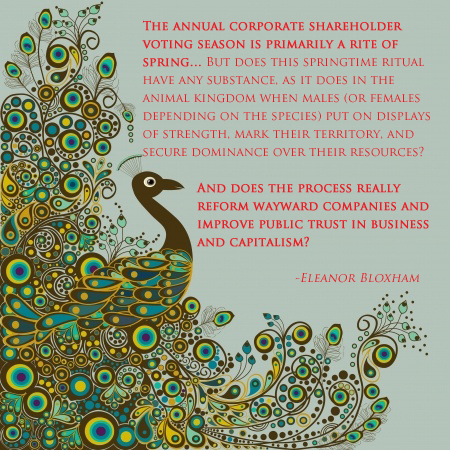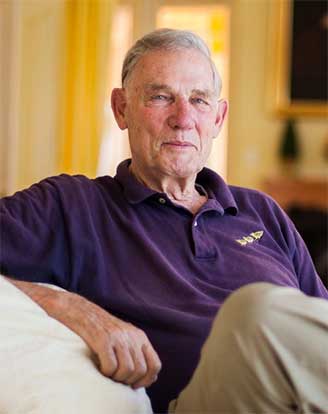I was scheduled to give a speech at the RFK Compass event in Cape Cod this week but unfornately I cannot attend. Here’s the speech I prepared on the state of corporate governance.
Will the Real Owners Please Stand Up?
What is an owner? And, what is an owner of a publicly traded corporation? It’s clear that they are not the same thing. We don’t own a corporation like we own a car or property. Even individual owners of corporate stock don’t really “own” the corporations. We have neither the rights nor responsibilities commonly associated with the term ownership.
ICGN speech 2015

Busy time in London: Spoke yesterday at the Responsible Investor conference, speaking at CSFI, Institute of Directors and Investor Forum next week. Many, many superb people here and I’m enjoying the chance to catch up with old friends.
Where No One Has Gone Before
Getting worldwide ownership to cooperate on an issue might seem like an effort in herding cats: everyone is going to do their own thing. The thing is, nobody is really doing their own thing. What we have is an uncoordinated body of ownership that blindly follows management.
When a Child Rules the Parent: The Problem of Corporate Domicile in a Global World
A corporation is the creature of the state. There is no such thing as corporate Common Law. Each of the earliest corporations was literally created by specific statute, a condition which has been diluted over the last four centuries. The original social contract that made creation of corporations attractive was explicit: what business, what term, what invested capital. These corporations were created to serve human interests and they were tied inextricably to the interests of society.
The Kabuki Theater of Corporate Governance
What we have in our current state of Corporate Governance is Kabuki Theater.
Myths of Corporate Governance
The American Economy is a corporate system, in the sense that control of the economic factors of production and distribute is vested largely in the handful of privately appointed corporate managers.
Why Not Me?
As I read in the Crimson “Divest Harvard Plans Weeklong Blockade of Massachusetts Hall,” I had to ask myself: why I am not participating? Why not me?
A True Tale About the True Cost of Coal
When was the last time that there was so much buzz about coal. First, there was news that Stanford, one of the major university endowments in the country, was divesting from coal. More recently, the EPA announced new regulations on coal emissions. Both are very big and very interesting announcements. However, coal is entrenched in our utility grid and coal provides 50% of electricity in the United States and even 100% in some states. Divestment & even the new regulations won’t solve our problems with fossil fuels but there is a solution – Integrated Reporting.
Stranded Assets & Divestment
This is an important and interesting addition to the responsible investing – divestment discussion. The Smith School issued a report on stranded assets, that is investments that “have suffered from unanticipated or premature write-downs, devaluations or conversion to liabilities.”
Restoring the Voice of the People
Four years after the Supreme Court ruled in Citizens United, surveys and polls continue to show the American people believe the decision was wrong. Those polls also reflect a deep concern that big money contributions by corporations and wealthy donors have endangered fair access to the political process and law-making. In addition, there is a strong sense among those polled that Citizens United is harmful to equal representation and political participation.
An Outsider's History of Harvard & Responsible Investment: 1970-2014
In an effort to make sense of Harvard's investment practices and (apparent) unwillingness to be a leader in responsible investing, I have spent the past weeks looking at the history. This forty-some-odd year span correspondes with my work in corporate governace so it seemed a good and handy timeframe for investigation. Copies have been sent to various contacts at Harvard but I hope you'll read it and comment. Feel free to share it because the issues apply all university and charitable endowments. An Outsider's History of Harvard & Responsible Investment: 1970-2014.
Citizens DisUnited
The kind folks at Free Speech for People interviewed me for a short video about my book, Citizens DisUnited which came just a year ago. Much of our work overlaps and I’m frequently in contact with FSFP – in particular, they are working on a constitutional amendment to address the Citizens United decision. We’re now 1/3 of the way toward this goal and there’s more interest in the issue than ever. Check out the FSFP website because there’s lots of information and some really good resources. And, in the meantime, watch the video out Citizens DisUnited.


